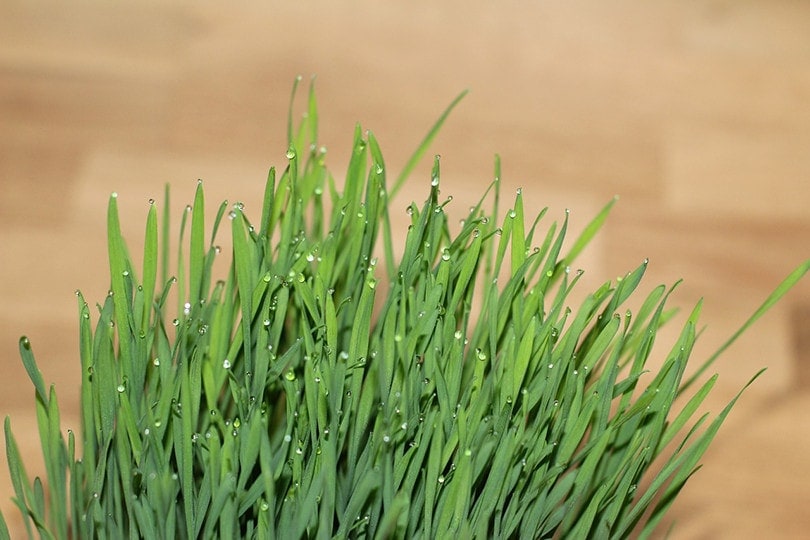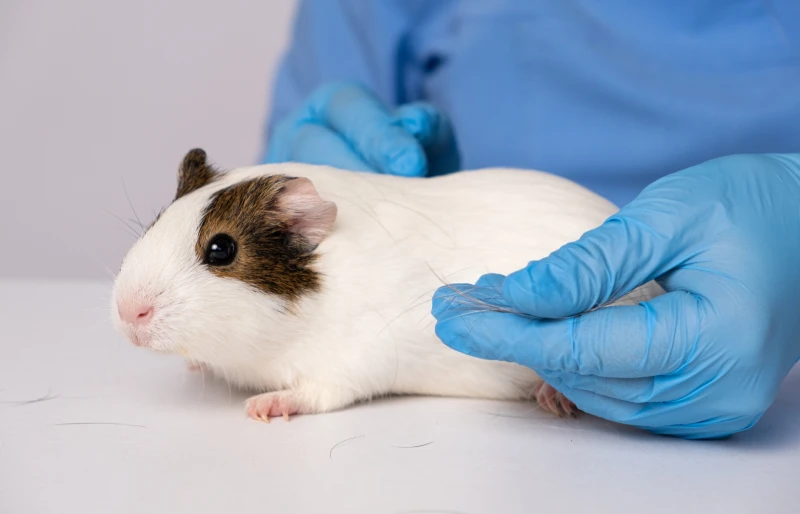American Guinea Pig: Breed Info, Pictures, Temperament, & Traits
Updated on
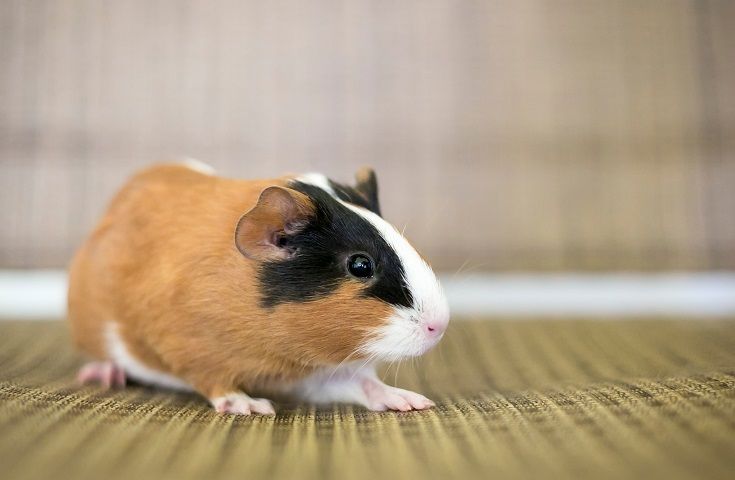
Click to Skip Ahead
There are over 13 breeds of guinea pigs, though it’s believed that the American guinea pig is one of the oldest recognized by the American Cavy Breeds Association. American guinea pigs are short-haired cavies that range in more than 20 color variations. In this article, you’ll learn everything you need to know about the American guinea pig, specifically, and what makes them so unique compared to other pocket pigs.
Breed Overview
| Size: | 10–12 inches |
| Weight: | 2–3 pounds |
| Lifespan: | 5–7 years |
| Similar Breeds: | White-crested, English, and American satin |
| Suitable for: | Beginners |
| Temperament: | Mellow, tame, gentle, calm |
What’s fascinating about the American guinea pig is that they have one of the most laid-back temperaments and are perfect for inexperienced owners and older children. The American guinea pig is the most popular of domesticated cavy breeds. The American guinea pig is mainly known for their silliness and curiosity. Sure, they’re laid-back individuals, but they have a spunky side that will likely make you laugh.
American Guinea Pig Breed Characteristics
How Much Do American Guinea Pigs Cost?
Guinea pigs originated from South America, inhabiting the lands of Peru, Bolivia, Chile, and many other countries 4,000 to 7,000 years ago. It’s said that guinea pigs were brought to Europe and raised as livestock in the 1500s, then brought to the United States as domesticated pets in the early 1900s.
The American guinea pig wins the popularity contest, as it is the most common domesticated cavy breed. These sweet, gentle, and emotionally caring pocket pals make the American guinea pig a popular choice among guinea pig owners.
Most guinea pigs can be bought online, at shelters, or through any pet store worldwide. In some cases, you can find purebred guinea pigs through breeders, which cost more than average. Most guinea pigs are mixed since it’s rare to find purebred guineas.
At a store or shelter, you’ll spend up to $50 for an American guinea pig, though it’s best to put aside $100+, as you’ll need food, enrichment toys, and other care items to care for your pocket pal properly. If you’re considering getting an American guinea pig, getting more than one pig is a good idea, as guinea pigs are naturally social rodents who thrive in groups of two or more.

Temperament & Intelligence of the American Guinea Pig
All guinea pigs are naturally well-tempered and easygoing, although the American guinea pig is the most equipped for beginner guinea pig owners. They are the most social and respond well to being handled. This short-haired breed loves to clown around and. On the other hand, American guinea pigs love to relax and cuddle up with you while you’re watching a movie.
If any cavy was suitable for being an emotional support animal, it’s the American guinea pig. They are super intelligent creatures that train efficiently and tune into your and other pet’s emotions well. However, you must create a strong bond with your piggy pal before training, as it’s crucial for an attachment process before learning tricks and tasks.
Once a bond has been established, your American guinea pig will aim to please you, plus train your guinea pigs to create stronger attachments. Overall, the American guinea pig is less likely to hold a grudge if you accidentally hurt them, like from accidentally clipping their nail quick.
Do American Guinea Pigs Make Good Pets?
American guinea pigs’ curious, social, and friendly attitude makes for happy families and superb pets. However, you’ll want more than one cavy to keep your American guinea pig happy, as human company may not be enough for your pocket pal.
Guinea pigs can become lonely and depressed quickly. An unhappy American guinea pig will hide, become less social, and even territorial if their social needs aren’t met. Humans have busy lifestyles, so a second one is a good idea if you cannot take your guinea pig out daily and provide it with all the necessary social care.
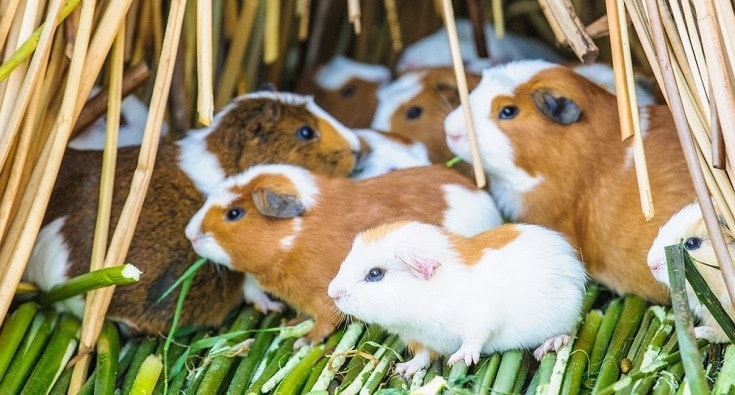
Do American Guinea Pigs Get Along With Other Pets?
American guinea pigs are social creatures who will likely get along with other pets. However, it largely depends on which pet and other pets’ temperaments. You cannot keep a guinea pig in the same cage with other species such as rabbits or other small rodents, as they have different social and dietary needs. You can likely keep rabbits and guinea pigs in the same household, though. If you allow playtime among rabbits and guinea pigs, you must supervise closely, as rabbits can harm or kill guinea pigs.
What about cats and dogs? Cats are a predatory species, and it is really not a good idea to keep the two together. However, if your cat resembles an aloof or laid-back temperament, there’s a good chance they’ll pay no mind to your guinea pig as long as the introduction is proper. Depending on a dog’s breed and temperament, guinea pigs may resemble prey to them as well. Dogs with an easy-going temperament with no prey drive are likely to bond with and get along with an American guinea pig, though. But supervision is always needed.
Things to Know When Owning an American Guinea Pig
Guinea pigs are strictly herbivores and should never be given meat or animal products for their diet. They are unlike rodents who thrive solitarily, as guinea pigs must be grouped to stay happy and healthy throughout their lifetime. Guinea pigs are also the most vocal rodents, making many that tell you how they’re feeling.
If you plan on adopting an American guinea pig, you should know some things. If you plan on bringing guinea pigs into your home, ensure you are committed to 8 years or more to provide the necessary care your guinea needs.
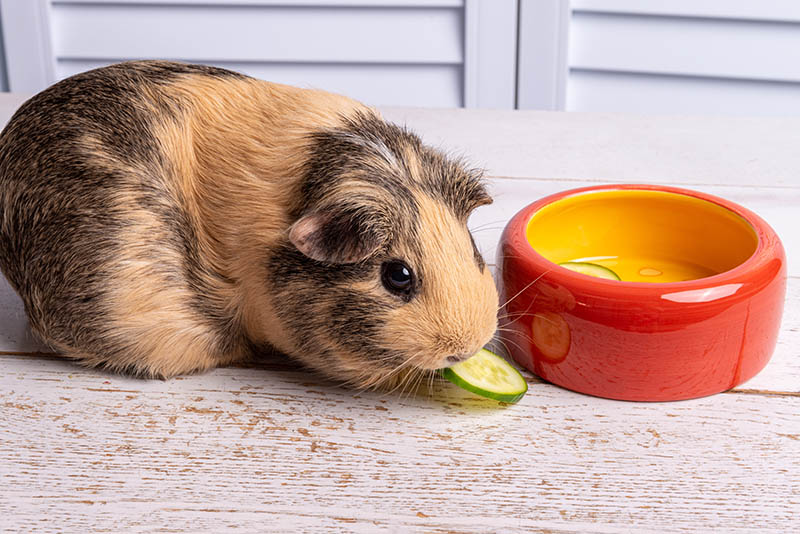
Food & Diet Requirements
Guinea pigs cannot produce vitamin C alone, so providing fruits and vegetables with vitamin C is crucial to prevent them from getting scurvy (vitamin C deficiency). Moreover, American guinea pigs cannot survive on fruits and vegetables, as their diet requires hay and grasses alongside commercially designed pellets for nutrition.
Cavies have two front teeth that continuously grow, so hay and food containing silica are necessary for guinea pigs, as silica helps grind down teeth. A sustainable and healthy diet for a guinea pig is as follows:
- Pellets (daily)
- Unlimited amount of hay (daily)
- Enrichment toys (bi-weekly)
- Fruit and vegetables (twice to four times a week)
- Vitamin C (daily)
- Water source (daily)
Habitat and Enclosure Requirements
Guinea pigs cannot run on wheels or balls, as their body type doesn’t allow for bending like hamsters and rats. American guinea pigs need space to roam, like a run or outdoor playpen. They cannot climb or jump, so size matters in guinea pig housing.
One guinea pig needs at least 7.5 square feet of space. Adding more guinea pigs will require at least 3.5 square feet more. Some websites say you can create a multi-floor housing for guinea pigs, though it’s recommended that you don’t. Multi-floor housing may benefit space, but it creates more chances your American guinea pig will be harmed if it falls. If space is an issue for you, it’s a good idea to build or create a run that can be easily placed anywhere outside, as guinea pigs need much exercise to stay strong and healthy.
Exercise and Sleeping Needs
Guinea pigs are active for up to 20 hours a day. American guinea pigs are unique because they sleep periodically throughout the day for up to 30 minutes in one session. Based on their sleeping habits, they need lots of space to roam around since they can become easily bored, especially if they don’t have a friend.
Letting your guinea pig free roam for at least 3 to 4 hours daily is a good idea. However, if you have other pets, watch your animals closely to prevent fights and injuries. If free roaming isn’t an option in your household, a playpen is necessary for your American guinea pig.
Training
American guinea pigs are smart creatures. They can learn a designated potty spot, their name, and other tricks that’ll blow your mind. As previously mentioned, spending time training your guinea pig will create a close attachment, though forming a bond is necessary before attempting training.
Some cool tricks your American guinea pig can learn are:
- Shake paws
- Fetch
- Stand
- Play dead
- Push a ball
- Follow
- Hide
- Many more
Grooming
There are few grooming requirements since American guinea pigs are short-haired breeds. However, they love to be brushed a few times a week, and their nails must be clipped bi-weekly or monthly. Guinea pigs don’t need baths, though to rid them of smelly oils and hard-to-reach places, bathing them every 3 months may be beneficial. Never bathe your guinea pigs in dawn dish soap or human products—get guinea pig shampoo.
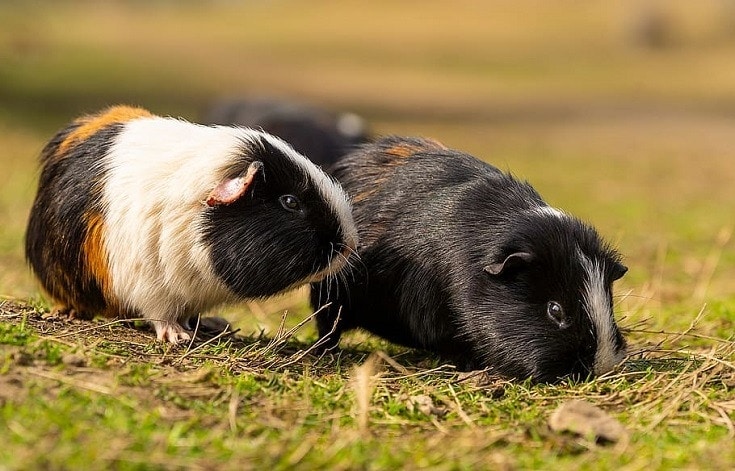
Lifespan and Health Conditions
American guinea pigs are one of the healthiest and long-living breeds of all cavies. However, it doesn’t mean they are super pigs. They can still get sick or have common health issues among all guineas.
- Bumblefoot
- Colds
- Skin issues
- Respiratory illness
- Ear infections
- Viral bacteria
- Worms and parasites
Male vs. Female
Generally, male guinea pigs (boars) are larger and tend to live longer than female guineas (sows). Males tend to be more dominant and confident than females, which may make the bonding process take longer due to their core suspicions.
Naturally, guinea pigs have had a hierarchy process, with mainly the males being group leaders. Females are more nurturing and friendly, as their primary responsibility in the wild is to reproduce and care for the young.
3 Little-Known Facts About American Guinea Pigs
American guinea pigs are excellent pets and resemble an overall well-balanced temperament. They are social beings who thrive in groups and rely on vitamin C to sustain a healthy life. Here are some little-known facts about American guinea pigs we thought were interesting:
1. They Are the Oldest Domesticated Breed
All guinea pig species are descendants of the species known as the Cavia Cutleri. The American guinea pig was one of the first guineas to become domesticated in the 1500s, brought to America in the early 1900s.
2. They Are the Most Vocal Rodents
American guinea pigs communicate differently depending on who they’re attending to. For example, they’ll squeak or chat quietly amongst each other, though when speaking to you, they’ll squeak loudly or purr vibrantly. Guinea pigs have a range of 11 to 15 different sounds. However, not every guinea pig is that vocal.
3. American Guinea Pigs Are Colorful
Most cavy breeds range in a few colors, mostly one solid color. The American guinea pig represents almost every color of guinea known to man. Some are even calico or multi-patterned.
Final Thoughts
American guinea pigs are the oldest domesticated breed that inhabits one of the friendliest temperaments of all guinea breeds. They are perfect for beginner pet households and get along reasonably well with children and other pets.
American guinea pigs are very intelligent and have a well-balanced attitude that will make you laugh. Their ability to tune into emotions makes them exceptional pets for people with mood disorders.
See also:
- Skinny Guinea Pig: Pictures, Lifespan, Behavior & Care Guide
- Sheba Guinea Pig: Pictures, Lifespan, Behavior & Care Guide
Featured Image Credit: Mary Swift, Shutterstock


